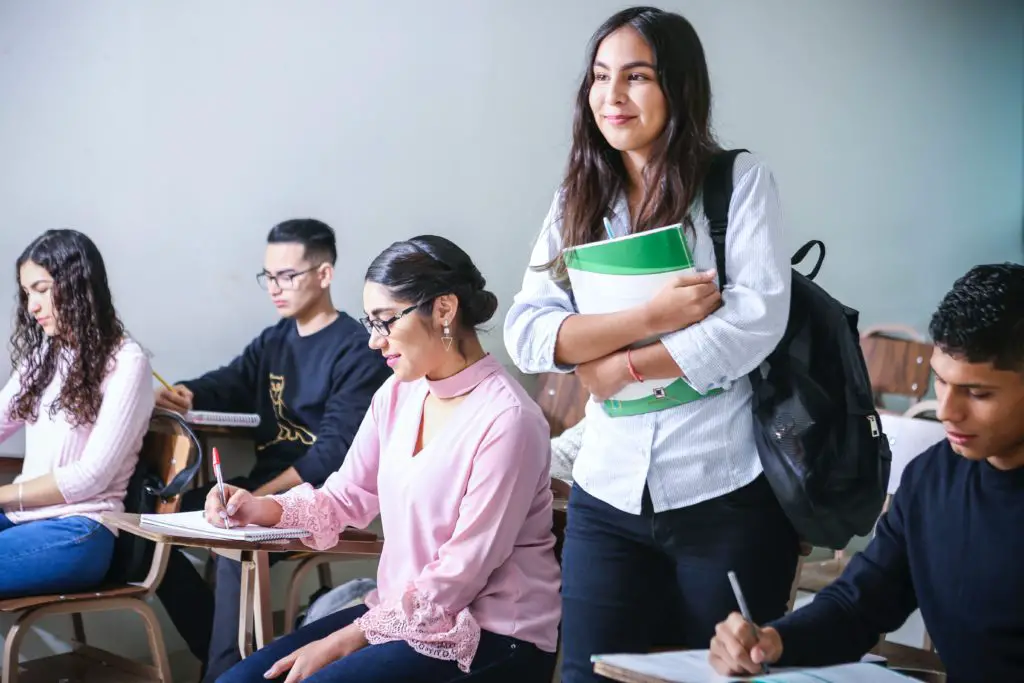
To know what are the three ways you differentiate teaching for gifted students…read on this article..
Gifted children are unique and require special attention to make their studies interesting. It is important to develop special plans for these children as other curriculum strategies might not work with them. The intellectual, academic, and social-emotional development of extraordinarily talented children differs from that of neurotypical students; that is the reason teacher’s need new, innovative strategies.
The technique of differentiation and 3 ways to differentiate teaching for gifted students-
Differentiation is the least invasive intervention for students who are profoundly gifted. 3 essential strategies that can be helpful to differentiate teaching for gifted students include-
Specially Designed Curriculum-
- Provide opportunity for self-directed, open-ended activities.
- Educate students on the research skills they will need to perform an independent study in their area of interest.
- Encourage the use of imagination. Pose more difficult queries.
- Allow for the development of depth and breadth of knowledge in a particular area.
- Use of tiered assignments.
- Compacting the Curriculum- A well-known model in the gifted community. Based on existing knowledge, the curriculum can be changed or skipped. Students were given a pre-assessment to determine what they already knew and what they needed to learn.
- Do a quick pop quiz following your initial explanation of a concept to evaluate the gifted pupil’s grasp. If they do, return them to their desks and assign them some solo work while you continue to teach the class.
Use of Pre-Testing-
- Give the learner a practice test to demonstrate mastery.
- Provide self-checking materials and assessments at a higher cognitive level.
- Before beginning a new topic, it is critical to pre-test your talented students. A gifted student can easily sit through a whole unit of work and learn nothing new. Choose your assessment carefully so that it isn’t too time consuming.
Learning about Individuals’ Interest and Talents-
- When gifted kids finish projects ahead of their peers, they are frequently requested to undertake busy labor. Instead, use the talents and interests of bright pupils to further develop a skill. Students could, for example, write or draw something connected to the assignment/skill, or they could play out issues or project solutions.
- Find out what motivates gifted students.
Other Strategies to diffferentiate teaching for gifted students
- Ability grouping- Gifted children can improve through learning with others who have similar aptitudes and capabilities. As a result, the rate of learning corresponds to the student’s capacity.
- Allow gifted students to work independently.
- Provide assignments and activities that are open-ended or self-directed.
- Provide project-based learning opportunities
The strategies are based on 4 arenas or components-
Content-
- Representative subjects are investigated and webbed within the content area, with open-ended inquiries probing into a specific field of knowledge.
- Make more difficult reading materials available.
- Rather than minor details and facts, concentrate on the overall trends, patterns, and themes.
- Investigate problems with no obvious solution.
Process-
- Problem-based learning, simulations, individual study (both guided and unguided), and higher-level thinking questions are examples of pedagogical tactics or processes used to encourage thinking.
- Allow for a variety of student groupings: individuals, pairs, and small groups.
- Create specialized learning centres for skill work. Encourage innovation and reward risk-taking.
Product-
- A differentiated approach’s products reflect both the learners’ expression and the field of study’s applicable abilities. These outcomes can be attained through exposure to learning opportunities created in the classroom or in the outside world.
- Include the student in the development of the scoring guide.
- Assign assignments that are genuine and appropriate for a real audience.
- Match the product to the desired outcomes.
Learning environment-
- In a classroom setting, differentiation takes the form of interest and learning centers, study areas, computer stations, and work areas for artistic and scientific discoveries.
- Is the teacher devoted to differentiated instruction? Interested and curious? Willing to give up control of your education?
- Groupings: Do gifted children have the opportunity to collaborate with others who are similarly gifted, even across grades?
Why is it necessary?
Gifted children can go beyond what is being taught in the classroom and challenge themselves by working on something that is more at their level of learning. It enables more personalized learning for each student.
Things to avoid-
- High achievers should not be confused with high-ability students.
- Assume that all brilliant students are alike and that a single method will work for them all.
- Give pupils too many instructions about how to finish a task.
Conclusion
It is a necessity to include the differentiative strategies for teaching gifted students as their ability to comprehend the information is higher than their peers. The strategies include developing a specialized and compact curriculum, doing pre-assessment evaluations to check the pace of the individual and learning about student’s interests.
Frequently Asked Questions
- Is it necessary to differentiate teaching for gifted students?
Yes, differentiating teaching strategies will benefit gifted students.
- How do you identify a gifted child?
Have complex processing of information and ability to think abstractly.
- Are gifted children high on IQ and Achievement tests?
Yes.
- Should schools use different teaching strategies?
Yes, it will help gifted students to learn better.
